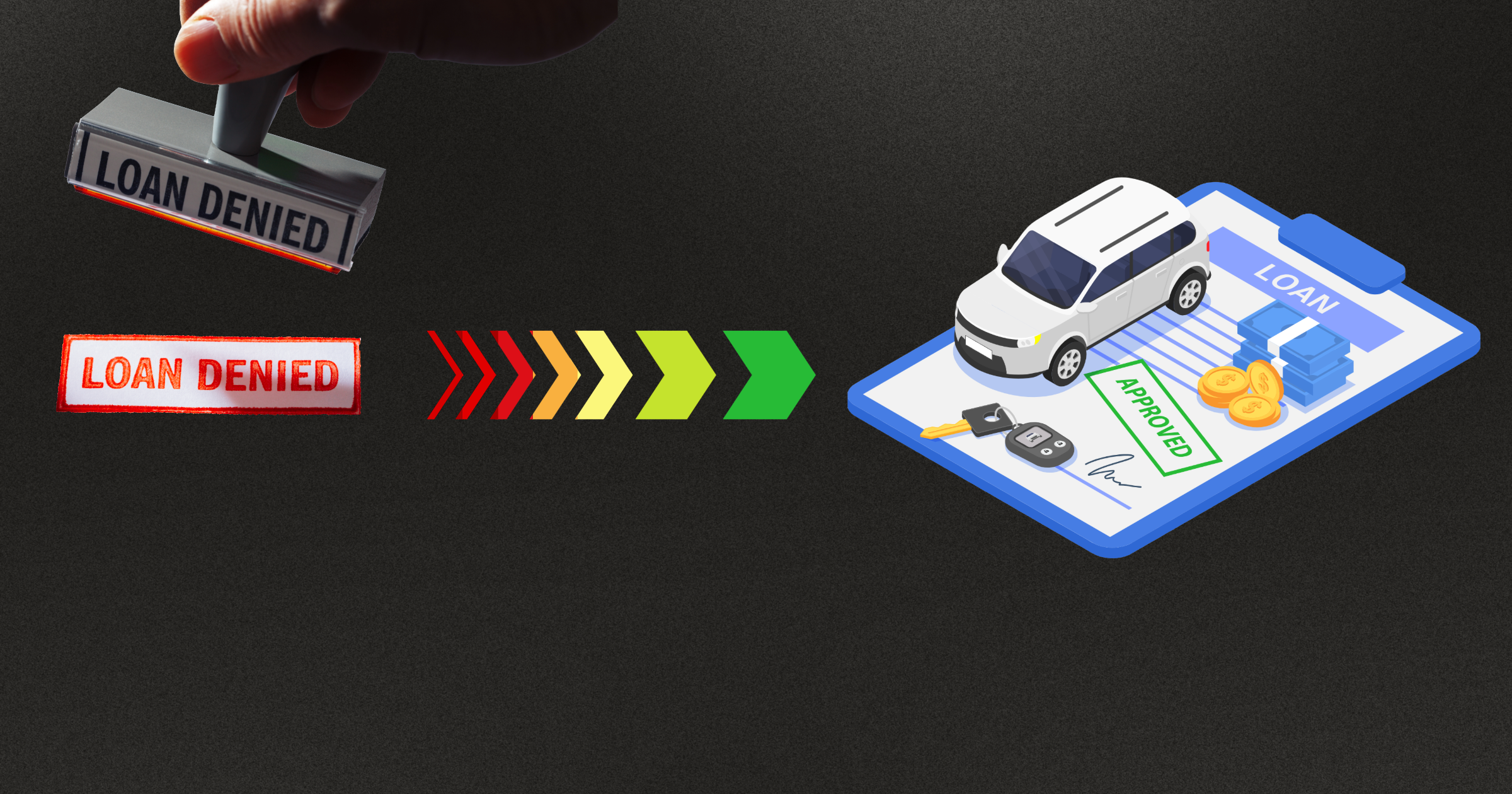With a delinquency rate reaching the highest level since the Great Recession, auto loan debt has become serious business for lenders and the agencies that represent them. The factors leading to this decline include a record-high sum of newly originated auto loans ($584 billion in 2018), a record-high average price per vehicle ($37,577 in December 2018), a shrinking dollar for many Americans, and questionable practices by some auto lenders.
Meanwhile, collection efforts are being challenged by widespread labor deficits, a robust regulatory climate, and borrowers with lofty demands.
Data from the New York Fed’s Consumer Credit Panel indicates that the lending practices of small banks, credit unions and large banks (i.e. issuing loans to borrowers with credit scores of 660 or higher) resulted in the most favorable outcomes.
At the other end of the spectrum, auto finance companies experienced higher delinquency rates because 50 percent of their loans are made to borrowers with scores below 620. These vulnerable institutions would be well-served by the words of Benjamin Franklin — “An ounce of prevention is worth a pound of cure” — to deter future delinquencies.
To improve collection outcomes, lenders and agencies must remain disciplined in the core areas of industry experience, compliance, certification, and data security while ratcheting up efforts in collection operations, receivables management technology, consumer relations and best practices.
Part one of this two-part series focuses on the core disciplines of collecting auto loan debt (see part two).
The Latest Numbers Behind Auto Loan Debt
The “airwaves” of the financial services sector came alive in May 2019 following the release of the Q1 2019 edition of the Quarterly Report on Household Debt and Credit from the Federal Reserve Bank of New York’s Center for Microeconomic Data. At the time, many columnists singled out auto loans as a major cause for alarm among the different types of debt.
According to the study, 4.69 percent of auto loans and leases became seriously delinquent (90 days or more past due) in early 2019. This translates to the highest delinquency rate in auto loans since Q4 2011 and only 58 basis points less than the peak (5.27 percent) realized during Q4 2010. It also means that over seven million Americans with auto loans are 90 days or more behind on their payments. This number represents the highest number of delinquencies recorded by the Fed since it began tracking the data.
Approach to Collecting Auto Loan Debt
Early intervention during the first 30 days of delinquency is an essential component of recovering auto loan debt and maintaining an optimum level of customer retention.
Auto lenders may collect outstanding debt via internal collection departments, outsourcing to third-party agencies, or a combination of the two.
For example, lenders may send written notices during the first 30 days of delinquency, then outsource accounts to qualified agencies during the 30-to-60-day period. Such escalation to an agency often makes a profound impression on consumers, underscores the depth of the problem, and prompts the signing of a repayment plan.
Notwithstanding, the “buck” stops at 90 days of delinquency — where favorable outcomes severely decline — so agencies are highly motivated to find solutions before reaching that point.
On the other hand, lenders with little-to-no experience in conducting their own collections may experience compliance failures, substandard recovery rates, high customer churn rates, or tarnished brand images. Lenders with any or all of these outcomes should generate and distribute a request for proposal (RFP) to find qualified agencies.
Lenders outsourcing 100 percent of their delinquent accounts to third-party agencies expect immediate results. Large lenders may contract with multiple agencies and assign them specific segments of the mega portfolio. They often compare agency scorecards after a period of six months before deciding to terminate specific agreements or assign additional segments of the portfolio to the best performing agencies.
Given their success rates, there is a huge probability the surviving agencies have extensive industry experience and are well-versed in the core disciplines of compliance, certification and data security.
Industry Experience
Agency leaders are expected to remain current on economic and consumer trends, compliance, certification and data security. Auto lenders should look for agencies with executive management having 15 or more years of experience in auto financial services and strategic planning.
On the operations side, management should be fully fluent in receivables management and dialer technologies, metrics and KPIs, strategic predictive analytics, documentation, reports, scoring, segmentation and training.
Before contracting an agency, auto lenders should seek firms that design industry-specific collection strategies and solutions that drive measurable results, brand protection and customer retention.
Compliance
Compliance management systems (CMS) are the guiding instruments behind every collection effort, whether the lender is conducting its own receivables management or outsourcing it to a third-party agency. A CMS fulfills regulatory requirements and simultaneously creates an environment of accountability and transparency for all interested entities.
A compliance management team stands behind every effective compliance management system to ensure efficacy and provide moral compass. The structure of these groups varies as a function of house preferences, but they are always led by department heads such as the chief compliance officer or director. These officers work in concert with certified compliance officers, legal teams and stand-alone quality assurance departments.
Every collector assigned accounts in auto loan debt should have a thorough understanding and retention of the core federal laws relating to collections:
- Gramm Leach Bliley Act (GLBA)
- Health Insurance Portability and Accountability Act (HIPAA)
- Fair Debt Collection Practices Act (FDCPA)
- Fair Credit Reporting Act (FCRA)
- Telephone Consumer Protection Act (TCPA)
- Servicemembers Civil Relief Act (SCRA)
- Red Flags Rule — identity theft protection
Collectors should also be aware of the states and local governments having unique collection laws. The majority of state debt collection laws mirror their federal counterparts, but a few jurisdictions have specific auditing procedures and more rigorous mini-Miranda requirements for written and oral communications.
The legal departments stay abreast of changes to collection legislation and or their judiciary interpretation, and also play an important role in establishing compliance training programs for new employees and refresher instruction for experienced collectors.
Meanwhile, the quality assurance departments monitor and record collection calls on a daily basis using a scoring and grading system. Debt collectors with unsatisfactory reviews may be retrained and retested before making further contact with consumers.
Certification
The process of collecting auto loan debt warrants an investment of time and resources into the proper certifications. Third-party agencies, for example, must be licensed and or bonded to collect in all states as required.
It is also paramount for them to garner four critical certifications:
- SOC 1 Type II reports are compliant with the SSAE 18 auditing standards and evaluate clients’ internal control over financial reporting at agencies throughout a specific period.
- SOC 2 Type II reports focus on the effectiveness of non-financial reporting controls relating to security, availability, processing integrity, confidentiality, and privacy of a system.
- PCI Data Security Standards (PCI DSS 3.2) establish technical and operational requirements for agencies using, storing or transmitting payment card data.
- Professional Practices Management System (PPMS) certification by ACA International upholds a rigorous auditing process and standards (less than 2 percent of agencies maintain this distinction).
In addition, over half of the states require agencies to carry surety bonds to ensure compliance with their regulations before issuing collection licenses. Bonds guarantee the proper handling of personal data or the collection of funds on behalf of clients. Agencies failing to properly forward collected funds or mishandling data, for example, could have a claim filed against them by an individual state.
Data Security
The PCI DSS certification mentioned in the previous section is also a major component of a robust data security system.
Establishing tight data security standards begins with people. Lenders and agencies collecting auto loan debt should conduct thorough pre-employment background checks (as permitted by state and federal law) and drug screenings to ensure the safety and privacy of personal identity information and data.
It is also commonplace for these firms to maintain 24-hour closed circuit video surveillance (CCTV), badge-only access to the facilities, and deeper levels of security clearance to enter the call centers. Finally, clean desk policies prohibit pens, paper, and personal electronic devices in the call centers. Consequently, it is commonplace for collection facilities to utilize erasable grease boards and individual storage lockers to secure personal items while collectors are on the clock.
Data security systems also protect sensitive non-public personal information (NPI) during the exchange, recovery, storage and archiving of electronic files. This security is conducted via encryption, secure file transfer protocol (SFTP), secured environments, and workflow automations.
To protect internal networks from public facing networks, agencies implement a system of security hardware, firewalls, routers and more that are updated and monitored to ensure maximum protection.
Other security measures entail monitoring the authorized access to call centers, the levels of user authorizations, the monitoring and reporting of access violations, and business continuity and disaster recovery plans.
Lastly, auto lenders and agencies should maintain copies of plans, policies, procedures and training manuals pertaining to data security.
Summary
Despite the widespread optimism about the U.S economy, serious delinquencies (90 days or longer) in auto loans have been on the rise since 2012 for borrowers with credit scores below 720.
Consequently, it is important for companies to maintain judicious lending practices and effective debt collection strategies, whether they operate their own collection departments or outsource auto loan debt collections to third-party agencies.
Optio was founded on a foundation of compliance, certification, data security, receivables management technology and financial services experience. Furthermore, the agency is guided by an affiliate financial services company with over 30 years in auto loan recovery operations.
Finally, Optio is only one of 50 agencies in the United States to have garnered Professional Practice Management System (PPMS) certification from ACA International.
Contact Optio Solutions today to request a proposal or simply to inquire about an individualized collection strategy for your auto lending company.








